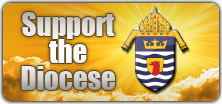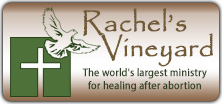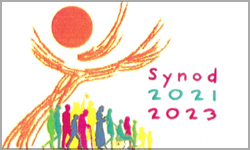“’The Spirit of the Lord is upon me.’” Luke 4:18
When our Lord rose in the synagogue of Nazareth to proclaim the words of Isaiah, He proclaimed this as His mission: “’The Spirit of the Lord is upon me, because he has anointed me to bring glad tidings to the poor. He has sent me to proclaim liberty to captives and recovery of sight to the blind, to let the oppressed go free, and to proclaim a year acceptable to the Lord’” (Luke 4:18-19).
We, as priests, share this in common. We are all anointed. Whether on our hands as priests or again on our head as bishop, the Sacred Chrism, blessed in this liturgy, is applied to us, a sign of the “Spirit of the Lord” coming upon us to do a special work that is uniquely ours for it is uniquely Christ’s. After all, He is the Christos, the Messiah, the anointed one, and we share in His identity. Do we not also share in His Spirit?
Often we hear people speak of “having” the Spirit. They say, “I have the Spirit” or “He or she has the Spirit.” I think this kind of talk needs some clarification. I do not “have” the Spirit in the same way that I have a dollar bill or a new automobile. The Spirit is not a possession or commodity. It is not property to be bought or sold, bargained for or traded.
Instead in the Sacred Scriptures we hear of the activity of the Spirit. The Spirit “rests.” The Spirit “dwells.” And let us look at the words that Isaiah uses. The Spirit “is upon me,” “anointed me,” and “sent me.” The activity is the Spirit’s. The Spirit is the doer. We are the recipients, and when we do act, it is in response to the Spirit’s work. If we do anything at all, it is and should be what the Spirit prompts us to do.
The Spirit, then, does not come forth from programs, processes, and ideologies. Why? Because these are of human origin. They are evidence of Man’s infinite confidence in himself. However, if there is one thing that the Passion and Death of our Lord teaches us, it is that the work of redemption and all associated with it is the work of God. And because the Spirit comes forth from the Son as well, Jesus Christ manifests to us how that Spirit should work in our lives. To understand this, I think, is to more fully appreciate our priesthood in Jesus Christ.
The Sacred Scriptures tell us what the apostles considered important. We find in the Acts of the Apostles four actions in which the early Christians engaged that flowed directly from the outpouring of the Spirit at Pentecost. St. Luke tells us: “They devoted themselves to the teaching of the apostles and to the communal life, to the breaking of the bread and to the prayers” (Acts 2:42). This is the model for priestly life. [For this and other related reflections cf. Joseph Ratzinger, Teaching and Learning the Love of God, Ignatius Press, 2017, pp. 321-325.]
Not too long ago, a priest asked me about what he should do, because these were troubled times. Hardly anyone would argue with that. So, he felt, he needed to do something more than what he was already doing. My response at that time was, “Be faithful and preach the truth.” I do not know what else a priest could do. In many ways, I think the listing of St. Luke in the Acts of the Apostles sums up the priestly response much better.
Devoting oneself to the truth as preached by the apostles, living communally at peace and in concord, celebrating the Eucharist well and with devotion, and remaining faithful to our personal prayer and the prayer of the Church, which is the Liturgy of Hours—this is what we do. This is how the boat remains directed to port while navigating stormy seas, where the troubled soul finds its comfort and courage, why programs of human invention fall short, and when, as priests, we discover that the Spirit of the Lord rests upon us. For the Spirit was given to us. We did not choose it. It chose us. We did not conjure it up. It was a gift. And when you are given a gift, you are thankful and you respond. Anything less is unworthy of the giver.
So, let the Lord speak to us. You know we have heard so much since the Second Vatican Council about the Sacred Scriptures being made accessible to us. The Council correctly saw, as one of its goals, encouraging the reading and study of the Scriptures, to seek a better understanding of the Word of God. Sometimes, I think, we miss the point of that lesson. Do we really understand the Sacred Scriptures better when we do not read them within the context of the Church who mediated the Divine authorship?
It is with this in mind that we see Our Lord take the scroll of Isaiah from the hand of the attendant in the synagogue of Nazareth. He opens the Word of God and allows it to speak for Him. After all, He is the Word made flesh. For everything He said or did was a fulfillment of what had been written by the prophets. The Spirit was revealing Him. The Spirit was doing its work. The High Priest had nothing more to say but these final words, “Today this scripture passage is fulfilled in your hearing” (Luke 4:21).
















